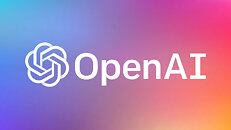OpenAI Reportedly Considering ~$500 Million Takeover of io Products - a Smart AI Device Startup Founded by Sam Altman
At some point in 2023, Sam Altman founded a new AI hardware device firm: io Products. Last September, Jony Ive confirmed his involvement in this startup tech company. Industry whispers suggest that Open AI's CEO (Altman) and the former Apple chief designer (Ive) were collaborating on the making of voice-enabled smart AI assistant household products. According to a (paywalled) The Information news article, this fledgling operation attracted an "undisclosed amount of funding" from wealthy benefactors. The "small team" is reportedly working on some type of "revolutionary" screenless AI phone, but this rumored project is likely in a very early stage of development—so moles have not disclosed exact details.
The report posits that Ive has recruited Tang Tan and Evans Hankey—both high-level ex-Apple industrial leads, with long-term iPhone design experience. The Information's anonymous inside sources believe that Ive's LoveFrom boutique agency will determine the visual setup for forthcoming io Products smart devices. Additionally, the report extends to a potential takeover bid—valued at around $500 million (USD)—coming from Altman's main gig. Open AI's leadership is supposedly weighing up its options. The Information disclosed an alternative avenue; a simple partnership—rather than a comprehensive takeover.
The report posits that Ive has recruited Tang Tan and Evans Hankey—both high-level ex-Apple industrial leads, with long-term iPhone design experience. The Information's anonymous inside sources believe that Ive's LoveFrom boutique agency will determine the visual setup for forthcoming io Products smart devices. Additionally, the report extends to a potential takeover bid—valued at around $500 million (USD)—coming from Altman's main gig. Open AI's leadership is supposedly weighing up its options. The Information disclosed an alternative avenue; a simple partnership—rather than a comprehensive takeover.

























